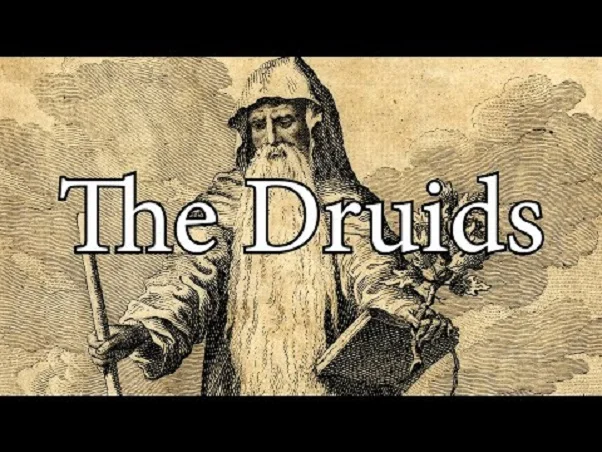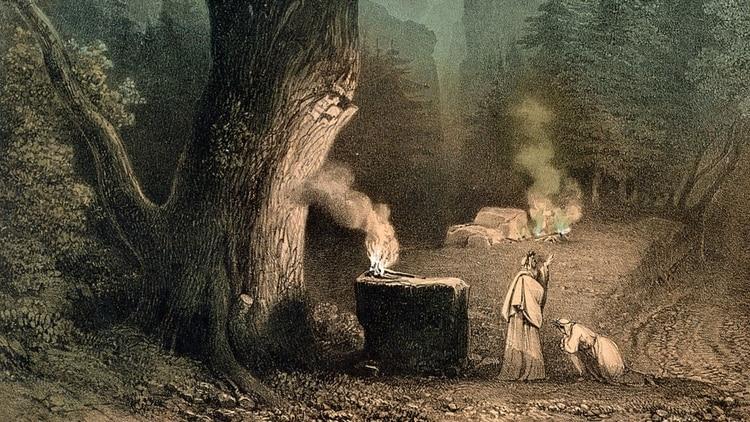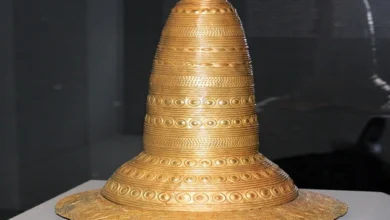Why the Druids were thought to be forest wizards and why the Roman Emperor Julius Caesar wiped them off the face of the earth

Modern society imagines the Druids as fairy-tale wizards, but this is just a myth. These people lived in the British Isles and the lands of Western Europe from the 3rd millennium B.C. They were Celtic priests and warriors who possessed real secret knowledge. Their most sacred tree was the oak.
For a long time, the existence of the Druids was confirmed only by the works of ancient Roman and Greek authors. At the end of the twentieth century, however, their tombs were discovered. The disappearance of the Druids has been attributed to the Roman Emperor Julius Caesar and his warriors. Nowadays, there are followers of this culture, the Druids.
Who were the Druids, and what did they do?

The Druids are associated with Celtic tribes who lived from the 3rd millennium B.C. until the 5th century A.D. They settled in the territories of Central and Western Europe, as well as in the British Isles. They were pagan priests, or as they were more commonly known, Celtic priests.
“Druids” in Celtic means one who receives knowledge from an oak tree.
Historians emphasize that the Druids possessed special knowledge which could be regarded as magic:
- They were excellent healers and cured ailments. They used medicinal herbs to make special potions.
- They were predictors, clairvoyants, and card readers.
- They took part in court cases and disputes, helping to resolve conflicts.
- They knew and preserved the legends and mythical poems. They passed them on to their followers.
- They were engaged in astronomical calculations, using places of power with a cluster of ancient stones. The clearest example of this remains Stonehenge.
The Druids are known to have performed religious rites involving sacrifice. There is some historical evidence that they sacrificed human beings (criminals or prisoners) and did so with great cruelty and indifference. Such actions surprised and amazed even the Roman warriors themselves, who had seen a lot. In this case, they acted as a link between the people and the gods. Some historians believe that there is no tangible evidence that the Druids subjected people to death by sacrifice.

Interestingly, the main sanctuary for the Druids were not the gods, and the trees, especially the oak tree and the plant-parasite mistletoe. The oak was considered to be a mighty and majestic tree with powerful energy. That is why the druids set up their sanctuaries in oak groves. The branches of this tree were used in various rituals.
Is there any evidence of the existence of the Druids?

It turns out that about the Druids to humankind was known thanks to ancient writings and legends for a long time. However, no finds or burials could be found. In 1987, British archaeologists managed to disprove the myths about them and confirm that these people existed.
During archaeological digs in a sandpit near Colchester, U.K., several graves were discovered. Research has confirmed that their age dates from 50-60 A.D. One of the graves belonged to an ancient Druid. Apart from the remains, a set of surgical instruments and various magical objects were also found.
The results of the research have been published in the journal British Archaeology. Editor and archaeologist Michael Pitts took part in the research. The subject of the Druids had long been of concern to him. So Pitts collected and researched all possible information about them.
The most comprehensive description of these Celtic priests came from the Roman emperor Julius Caesar in his book “Notes on the Gallic War”. He managed to describe the Druids in detail and describe their everyday life, way of life, and magical abilities. Caesar also mentioned that the Druids were noted for their cruelty and for sacrificing people.
Other authors from ancient Rome and Greece also wrote about the Druids. Tacitus described them as hostile people. The Roman army was severely attacked by them when they landed on the island of Anglesey, Wales. Perhaps they were defending their territory against outsiders, a perfectly normal reaction. The Romans responded by destroying their sacred oak groves. Pliny the Elder and Cicero also wrote about the Druids in their works.
Why did Caesar exterminate the Druids?
Little is known about these Celtic priests. According to historical information, the ancient Druids disappeared from the face of the earth before the VII century. However, new stories about them began to appear in Britain. The authors of these works were Christian monks, not representatives of the Druid Order.
There was no friendly relationship between the Druids and the Romans. With the arrival of the latter Celtic priests were rapidly losing their former influence in the country. Therefore they lived with the idea and desire to start a war against Rome. Emperor Julius Caesar, on the one hand, admired their knowledge and capabilities. On the other hand, he saw these people as enemies to be eradicated. Therefore the Roman armies under Caesar unceremoniously destroyed the sacred places (trees and altars) and the Druids themselves.
The main sanctuary of the Druids was located on the island of Mona. After the destruction of the place and all the Druids who were there, their era ended. Those who survived eventually lost all knowledge and abilities. Now the Druids have become mere histories.
The Roman Emperor Julius Caesar didn’t just exterminate the Druids as enemies who prevented him from conquering territories. He saw them as a kind of threat and a problem for the Roman Empire and his power. The Druids had a strong spirit, a different religion, and did not want to submit to another ruler.
They were also politically active and were a strong backbone of the Celtic tribes. By destroying the ancient Druids, Caesar was able to conquer the northern territories of Europe unhindered. The backbone of the Celtic tribes was exterminated.
Druids in the modern world
Some historians believe that the Roman Emperor Julius Caesar failed in eradicating the Druids. Since the 11th and 12th centuries, there has been practically no information about them. It is possible that these peoples simply carefully concealed their existence and continued to worship their shrines. This culture has been of particular interest to people nowadays, since the twentieth century.
The ancient Druids passed their knowledge from mouth to mouth. They did not leave after themselves any documentary chronicles. In the modern world began to appear people who worship spirits of nature and call themselves Druids.
They present themselves to society as followers of Celtic priests and bearers of their knowledge. However, this trend has nothing to do with the ancient Druids. In 2010 Druidism was officially recognized as a religion in Britain, and around 20,000 Britons call themselves Druids.





If Julius Caesar exterminated the Druids, how where they still around in the 11th century, according to your article? Caesar wrote in his “Gallic Wars” that Druids were exempt from fighting. I have read nothing in the writings of Cicero, Caesar, or Pliny to support your assertions.